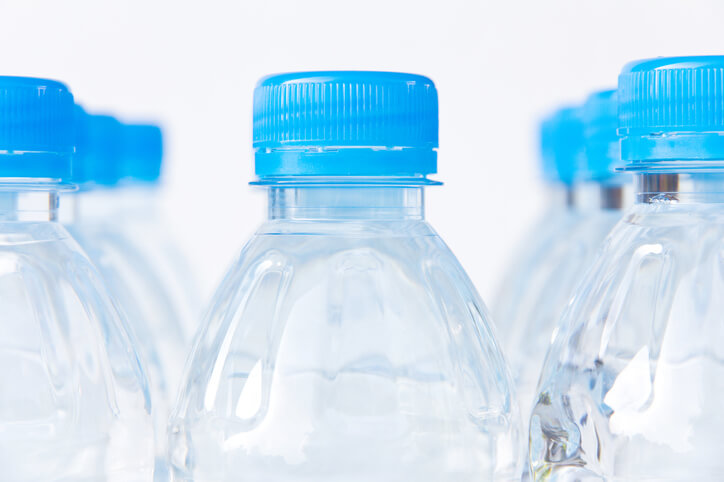Would You Like Some Plastic With That Bottled Water?

It’s pretty unbelievable how much plastic we use. Reportedly, since the 1950s, about 8.3 billion tons of plastic have been produced worldwide!
In addition to this, one million plastic bottles are bought around the world every minute. And if we don’t make any changes, it’s predicted that this will increase by 20 percent by the year 2021.
Well, it appears that we might want to really make some changes and reduce our use of plastic. Not just for the sake of the environment, but also for the sake of our health. This is evident from a recent study which revealed that several brands of bottled water contained “microplastics” that may cause health issues when the water is consumed.
Researchers looked at 11 different globally sourced brands of bottled water, bought in 19 locations in nine different countries (including the United States).
And some of these brands studied, which included Evian, Dasani and Aquafina, you have probably purchased and consumed their bottled water at some point in your life more than a few times.
According to a report on the study, published by the National Institutes of Health (NIH), of the 259 total bottles processed, 93 percent “showed some sign of microplastic contamination.”
What do they mean by “microplastic contamination?”
Basically, “...tiny bits of plastic small enough to be ingested by humans – could be leeching into our bottled water,” according to this report discussing the study, which refers to these bottled waters as “plastic stew.”
We can't really taste or see these microplastics in our bottled water, but that doesn’t mean that they aren’t doing us any harm healthwise.
There are still many unknowns regarding what the consequences of ingesting plastic are for humans, but what we do know is that plastic contains toxins and other harmful substances. Some of these toxic substances include endocrine-disrupting chemicals (EDCs).
“There is no end to the tricks that endocrine disruptors can play on our bodies: increasing production of certain hormones; decreasing production of others; imitating hormones; turning one hormone into another; interfering with hormone signaling; telling cells to die prematurely; competing with essential nutrients; binding to essential hormones; accumulating in organs that produce hormones,” reports the Environmental Working Group (EWG).
We have previously blogged about endocrine disruptors and how one of the common ones is bisphenol A (BPA). This chemical is found in many plastic containers and bottles, unless the product specifies as being “BPA free.”
So although you may be able to buy bottle water that is said to be BPA free, the issue is that there could still be microplastics that have leached into the water and be full of toxic substances.
How can we be proactive?
Well, I guess the obvious answer is to stop purchasing plastic bottled water. I know this may be difficult at times. Sometimes we have no choice. But try to get in the habit of carrying around reusable water bottles that are not made of plastic.
The truth is, we cannot completely avoid endocrine disruptors.
“Endocrine disruptors may be found in many everyday products– including plastic bottles, metal food cans, detergents, flame retardants, food, toys, cosmetics, and pesticides,” according to the National Institute of Environmental Health Sciences.
So you just have to do your best to minimize your exposure. In addition to not purchasing bottled water, check out these proactive steps you can take here.
You can also help regulate your hormones by eating plenty of fruits, vegetables and whole, natural foods. And according to Ohio State University’s Wexner Medical Center, having a healthy balance of selenium, vitamin D, vitamin B12 and iodine may help balance your hormones. Also focus on getting plenty of cruciferous veggies and dark, leafy greens.
Be sure to take a comprehensive nutrient test to identify any nutrient imbalances or deficiencies you may have. If you discover you are not nutritionally balanced, a competent healthcare professional can work with you on making the necessary dietary changes and recommend quality supplements if necessary.
You might also consider taking a toxins test. This test will reveal what toxins are accumulating in your body, and a competent healthcare professional can work with you on developing a plan to fight this build up of toxins.
Enjoy your healthy life!
The pH professional health care team includes recognized experts from a variety of healthcare and related disciplines, including physicians, attorneys, nutritionists, nurses and certified fitness instructors. This team also includes the members of the pH Medical Advisory Board, which constantly monitors all pH programs, products and services. To learn more about the pH Medical Advisory Board, click here.







